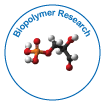Unsere Gruppe organisiert über 3000 globale Konferenzreihen Jährliche Veranstaltungen in den USA, Europa und anderen Ländern. Asien mit Unterstützung von 1000 weiteren wissenschaftlichen Gesellschaften und veröffentlicht über 700 Open Access Zeitschriften, die über 50.000 bedeutende Persönlichkeiten und renommierte Wissenschaftler als Redaktionsmitglieder enthalten.
Open-Access-Zeitschriften gewinnen mehr Leser und Zitierungen
700 Zeitschriften und 15.000.000 Leser Jede Zeitschrift erhält mehr als 25.000 Leser
Indiziert in
- Publons
Nützliche Links
Open-Access-Zeitschriften
Teile diese Seite
Abstrakt
Development and use of genus Bacteroides 16S rRNA enzyme Chain Reaction Assay for supply trailing Dog fecal Pollution in Bathing Waters
Khwam R. Hussein, Paul L. Waines, Raid B. Nisr, Gillian Glegg and Graham Bradley
Faecal pollution on bathing beaches poses a possible threat to human health and as a result can also negatively have an effect on the native economy. In instances wherever the supply of such pollution isn't obvious, it's going to be necessary to trace such sources employing a host-specific genetic markers technique. genus Bacteroides species area unit potential indicators for supply trailing of fecal pollution in bathing waters. This study designed specific primer sets to amplify sections of the 16S rRNA cistron distinctive to genus Bacteroides from doggies and used quantitative PCR (qPCR) to quantify such genetic markers in environmental samples. The sensitivity and specificity of the primer sets was determined; they were specific in silico against legendary dog {bacteroides|Bacteroides|genus genus Bacteroides|bacteria genus} sequences and in vitro against Bacteroides sequences originating from human and farm animal excretion. Dog fecal genus Bacteroides contamination was then detected in ocean water throughout the washing season at {a local|an area unita|a neighborhood} beach wherever dogs are prohibited throughout the summer months, in spite of the actual fact that these waters had met EU directive standards supported the culture-based enumeration of fecal indicator microorganism. Quantitative PCR was wont to confirm the limit of detection (LOD) of the dog genus Bacteroides genetic markers in these water samples. The copy range of dog genus Bacteroides genetic markers within the water was low and therefore the LOD of these markers was four copies per reaction. the employment of those dog primers has the potential to provide vital further info once supply trailing fecal pollution at bathing beaches and maintaining water quality.
Zeitschriften nach Themen
- Allgemeine Wissenschaft
- Biochemie
- Chemie
- Genetik und Molekularbiologie
- Geologie und Geowissenschaften
- Immunologie und Mikrobiologie
- Klinische Wissenschaften
- Krankenpflege und Gesundheitsfürsorge
- Landwirtschaft und Aquakultur
- Lebensmittel & Ernährung
- Maschinenbau
- Materialwissenschaften
- Medizinische Wissenschaften
- Pharmazeutische Wissenschaften
- Physik
- Sozial- und Politikwissenschaften
- Umweltwissenschaften
- Veterinärwissenschaften
Klinische und medizinische Fachzeitschriften
- Anästhesiologie
- Augenheilkunde
- Betrieb
- Dermatologie
- Diabetes und Endokrinologie
- Gastroenterologie
- Genetik
- Gesundheitspflege
- Immunologie
- Infektionskrankheiten
- Kardiologie
- Klinische Forschung
- Medizin
- Mikrobiologie
- Molekularbiologie
- Neurologie
- Onkologie
- Pädiatrie
- Pathologie
- Pflege
- Toxikologie
- Zahnheilkunde

 English
English  Spanish
Spanish  Chinese
Chinese  Russian
Russian  French
French  Japanese
Japanese  Portuguese
Portuguese  Hindi
Hindi